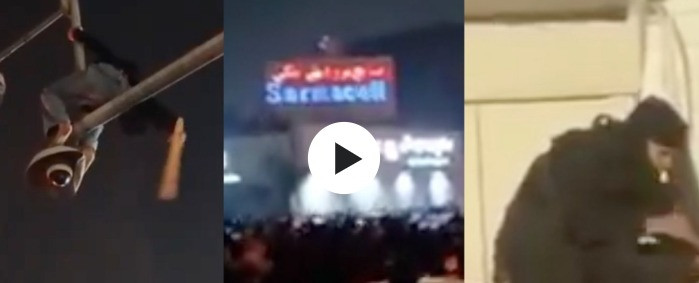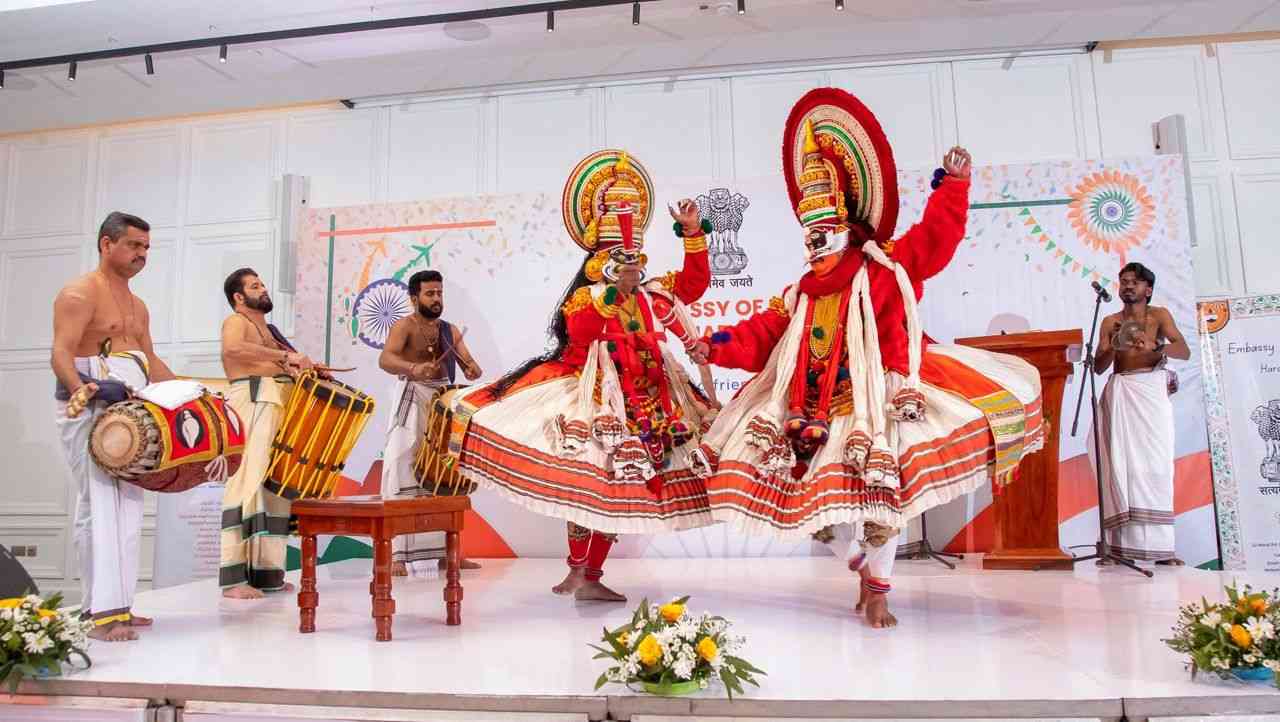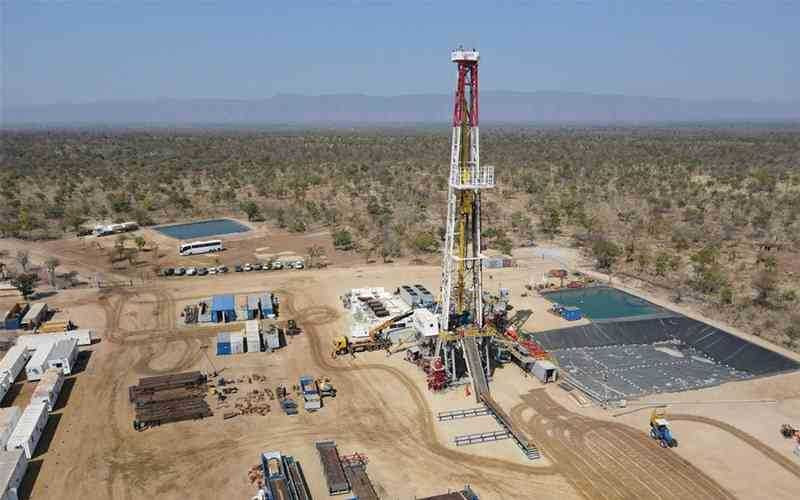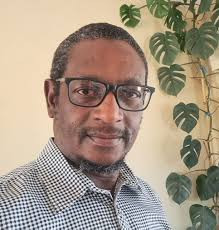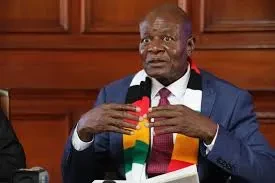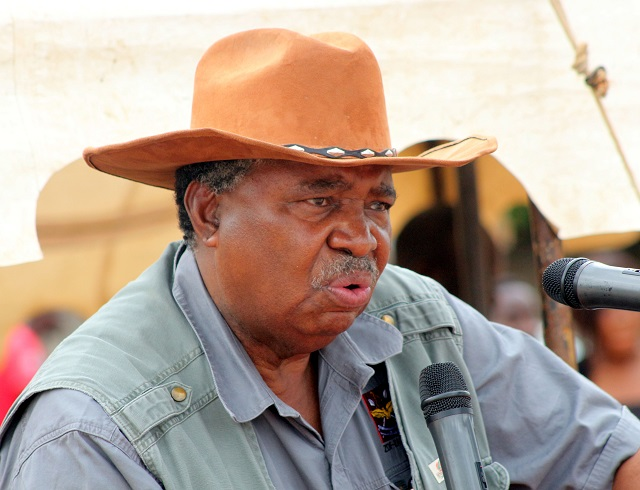
FORMER Vice-President Phelekezela Mphoko’s family has announced that he will be buried in Bulawayo according to his wish before he died last Friday.
Mphoko died while receiving treatment in India and President Emmerson Mnangagwa promptly declared him a national hero.
His body is expected at Robert Gabriel Mugabe International Airport today at 5pm and will depart for Bulawayo tomorrow at 9am.
Mphoko (84), who died of pulmonary embolism, was with his wife Laurinda, his two daughters and his grandson Daluthando when he passed on in India.
His daughter, Siduduzo, posted on social media platform Facebook that the former VP will be buried in Bulawayo, according to his wish.
“On behalf of the family, I hereby confirm that my father’s wish has been granted. He will be laid to rest at his home in Bulawayo. I will share funeral details,” Siduduzo said yesterday.
It has emerged that the former VP had indicated that he wanted to be buried at his plot in Douglasdale.
Mphoko family spokesperson Ndaba Mphoko told the media that his brother would be buried at his plot, but could not speak authoritatively about his remains’ transportation.
- Former VP Mphoko's son arrested for rape
- Mphoko's son remanded in custody
- Masisi proves ruling elite out of touch with suffering citizenry
- Mphoko’s son granted bail
Keep Reading
He indicated that his brother’s wish had been conveyed to government.
Mphoko will be one of the several Zapu cadres who snubbed burial at the national shrine, including former liberation war stalwart and Zipra intelligence supremo Dumiso Dabengwa, who was buried at his home in Ntabazinduna in May 2019.
Former President Robert Mugabe, who was ousted in the 2017 coup that cost Mphoko the vice-presidency, also snubbed the National Heroes Acre, where Mnangagwa’s government had built him a mausoleum.
Mugabe, who was the architect of the National Heroes Acre burials, was buried at his rural home in Zvimba.
The late former PF Zapu stalwart and ex-minister Tshinga Dube, just like former minister Edgar Tekere, reportedly refused to be interred at the National Heroes Acre, but were later buried at the national shrine.
Mphoko is survived by his wife, two daughters, one son and three grandchildren.
Mourners are gathered at his home in Douglasdale.
Mphoko, who was Zipra’s chief of logistics during the liberation struggle, was deputised by Retired Colonel Thomas Ngwenya.
He became one of the targets of the military coup when Mugabe and his government were ousted in November 2017.
Mphoko, during his time as VP between 2014 and 2017, always clashed with Mnangagwa and his supporters who regarded him as a second Vice-President.
The outspoken politician would tell Zanu PF supporters in public fora that he and Mnangagwa were equal.
Mnangagwa’s loyalists viewed him as a strong ally of the G40 cabal that was pushing for then First Lady Grace Mugabe to take over from her husband.
Mphoko was born on June 11, 1940 at Gwizane in Bubi district, Matabeleland North province and attended David Livingstone Memorial School in Ntabazinduna and Mzilikazi High School in Bulawayo.
He enrolled at the Tsholotsho Agricultural Breeding and Experimental School where he studied cropping and animal husbandry.
He later joined Dunlop Rhodesia Ltd where he became a workers’ representative in the moulding section and in 1963, he was arrested for political violence after lashing out at a Rhodesian police officer who had set his dog on him and fellow youths.
He was sentenced to three years in jail and sent to Khami Prison before appealing against the sentence and was granted bail awaiting a retrial.
In the same year he was a delegate at the congress of the People’s Caretaker Council held at Cold Comfort Farm.
The congress created a special affairs department and an external wing of Zapu that would plan and direct the armed struggle.
Mphoko was under the special affairs programme together with Albert Nxele, Walter Mbambo and Sam Dumaza Mpofu, who were selected by Zapu leader Joshua Nkomo to go for military training.
On April 4, 1964, while awaiting retrial, Mphoko left Zimbabwe as part of a group of six and received military training in the Soviet Union between May 1964 and February 1965.
In March 1965, he created the first military command structure, the military planning committee, to plan and direct the armed struggle.
Mphoko was one of the first seven commanders commissioned by the political leadership to recruit, train and command Zimbabweans into a revolutionary army.
In 1967, he became a member of the Joint Military Command in charge of logistics and supply in the ANC-Zapu Alliance.
He commanded the joint military rehearsals for the Wankie operations at Dan Nang base, Luthuli Camp, which included South African freedom fighters Joe Modise and Chris Hani (who are both late) and others. Hani was a detachment commander.
In 1967 and 1968, he operated in Sipolilo (now Guruve) together with Modise, Abraham Nkiwane, Dabengwa and others.
He was a delegate with Jason Ziyaphapha Moyo, George Silundika and Joseph Msika from Zapu in 1976 at the meeting that witnessed the formation of the Patriotic Front in Maputo, Mozambique.
Mphoko also attended the OAU Ad-hoc Committee of Foreign ministers in Luanda, Angola, with Msika and Silundika before being part of the delegates at the Lancaster House peace talks as a military delegate.
Mphoko was in 1980 appointed special envoy for Nkomo to President Samora Machel of Mozambique, King Sobhuza II of Swaziland, Chief Leabuwa Jonathan of Lesotho, President Fidel Castro of Cuba and Eric Honneker of the German Democratic Republic.
He served on the sub-committee that designed Zimbabwe’s national flag.
In 1981, Mphoko worked in the Labour and Social Welfare ministry as deputy director for demobilisation and he was transferred to the diplomatic service in Mozambique as liaison officer in 1987.
He was appointed liaison officer to Austria, covering the United Nations Drug Control Programme and the Comprehensive Nuclear-Test Ban Treaty Organisation in 1996.
In 2002, he was appointed Zimbabwe’s ambassador to Botswana before becoming the country’s top diplomat to the Russian Federation and later South Africa.
On December 10, 2014, Mugabe appointed Mphoko one of his deputies together with Mnangagwa.
He also headed the ministerial portfolio of National Healing, Peace and Reconciliation at the time.

